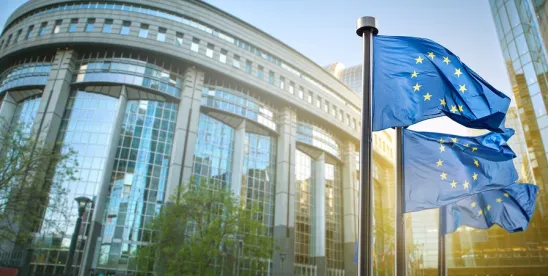On June 21, 2018, the European Commission (“Commission”) started a new investigation to determine whether so-called destination clauses in Qatar Petroleum’s liquefied natural gas (“LNG”) supply contracts with European buyers infringe the European Union (“EU”) antitrust rules.
The investigation comes in a context of revived regulatory focus globally into these clauses and LNG trading conditions. It also comes hot on the heels of the Commission’s seven-year probe into similar clauses used by Gazprom, albeit in the different market for gas supplied through pipelines.
Ensuring the free flow of energy supplies across the EU has long been a top priority on the Commission’s energy agenda and a key focus of its enforcement activities in this sector. The Commission sees LNG as a promising alternative to the supply of gas through pipelines. In that sense, this new investigation comes as a clear signal that the EU regulator is minded to intervene if it identifies any problematic impediments to the access to LNG supplies across the EU.
Two types of clauses appear to be the focus of the Commission’s investigation:
- Clauses that prevent any diversion of LNG cargo to alternative destinations within the EU; and
- Clauses that restrict the territories to which EU importers can redirect cargo elsewhere in the EU or the volume of cargo that they can redirect within the EU.
These clauses are also known as “destination clauses,” and the Commission has concerns that they hinder the free flow of Qatar Petroleum’s LNG within the EU. These concerns are not new.
In 2002, the Commission probed territorial sales restrictions in Nigerian gas company NLNG’s supply contracts. Five years later, it investigated similar restrictions in Algerian company Sonatrach’s LNG supply contracts. In both cases, the Commission ended its investigation after the companies committed to remove the destination clauses from their LNG contracts.
This new investigation thus comes as no surprise. In fact, the Commission had been observing the LNG sector for quite a while. Last year, the Commission published the results of its study into LNG and Storage Strategy, in which it identified destination clauses as a significant obstacle to LNG trade and the development of a fully-integrated EU energy market.
This new investigation must also be seen in the context of heightened antitrust scrutiny of LNG supply flows globally. In June 2017, concluding an intense sector-wide review and debate, the Japanese Fair Trade Commission (“JFTC”) concluded that destination clauses and diversion restrictions and profit-sharing mechanisms in LNG supply contracts were likely or highly likely to violate the Japanese Anti-Monopoly Act depending on the terms of the contract in question. Shortly thereafter, the Korean Fair Trade Commission likewise started looking into the effects of these clauses on competition. The Commission and the Indian Competition Commission also signed bilateral cooperation agreements with the JFTC last year that aim at curbing problematic destination clauses in LNG arrangements.
In this toughening antirust regulatory context, it remains to be seen how the commercial complexities of the LNG sector and concerns about the EU’s security of supply of gas will play out in the Commission’s analysis. In previous cases, the Commission had considered in some detail the types of arrangements and restrictions at play (destination clauses and potential variations such as profit sharing mechanisms, incoterms (FOB, DES, CIF), etc.), as did the JFTC in its June 2017 report. Regardless of its approach, it is fair to assume that the Commission’s investigation may have implications that will go well beyond the specificities of this case and could impact the wider LNG industry.








 />i
/>i
